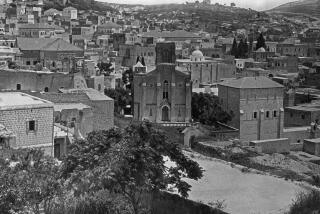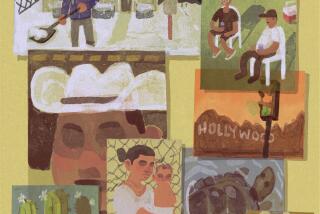The Kindness of Strangers
After my parents were divorced in the early 1950s, my mother, three sisters, brother and I moved into an old farmhouse that had been placed on top of concrete blocks on the edge of a small Midwestern town. In the winter, there was no way to keep the cold from pouring into the uninsulated walls and the pitted, cracked linoleum floors.
Mom could not work; a childhood disease had destroyed her right hip joint. We lived on what Dad could send in child support. When his check arrived, we paid our rent. Then we concentrated on how we would feed ourselves and pay the utilities. Clothing was hand-me-downs from other families.
My brother and I planted a garden to supplement our food supply and roamed the countryside looking for wild rhubarb, asparagus and raspberries. We tramped through the ditches outside of town, searching for empty pop bottles that could be turned in for refunds. A paper route brought in an extra dollar or two every week. Doctor? Dentist? Out of the question. In spite of our best efforts, we could not make ends meet.
Finally, someone from the welfare department came to interview us. Within days, we received a letter that said we would receive $30 every month. That money was often the difference between eating and not eating.
One cold winter day, an elderly farmer who worked as a volunteer for the welfare department brought a box of groceries over to our house. As he placed it on our kitchen table, he said: “All of us need a helping hand at one time or another. Someday, it will be your turn to help others.” I sensed that he was trying to protect our dignity as we accepted his charity.
As the national rhetoric about the poor grows increasingly cruel and mean-spirited--and the wealthiest Americans have more money than ever before--I remember the humiliation and painful loss of pride I felt when our family had to go on welfare.
Furthermore, the same politicians who vote against welfare assistance for the poor often support billions of dollars in tax breaks and other corporate welfare for the wealthy. So I am bothered by the mean-spiritedness of these attacks on the nation’s truly needy and by the callousness of those who have never experienced poverty.
Most of all, I am bothered by the pejorative labels and caricatures that strip the poor and their children of dignity as they struggle to survive. Given a better and more just world, most people would be gainfully employed and self-supporting. Illnesses, accidents, lost jobs, economic downturns and deaths often rob people of their means of support. For these poor, welfare is not “a black hole,” as some have labeled it, but rather an investment in our nation’s future.
My evidence is personal and anecdotal, but here is what welfare assistance did for our family: Virtually all of my mother’s children and grandchildren have graduated from college. They include a college professor, a social worker who was instrumental in helping develop the Minnesota Battered Women and Abused Children Organization, a personnel director for a wholesale distribution company, several successful self-employed businesspeople, a North Dakota teacher of the year, a family-practice nurse practitioner, a real estate agent, a registered nurse, a paralegal and a computer programmer.
The welfare assistance we received in the 1950s was an investment in our family’s future. We have repaid that investment many times over with our own tax money and commitment to our communities. If he were still alive, that old farmer who survived the Great Depression could teach Congress something about real welfare reform.
More to Read
Sign up for Essential California
The most important California stories and recommendations in your inbox every morning.
You may occasionally receive promotional content from the Los Angeles Times.










